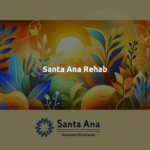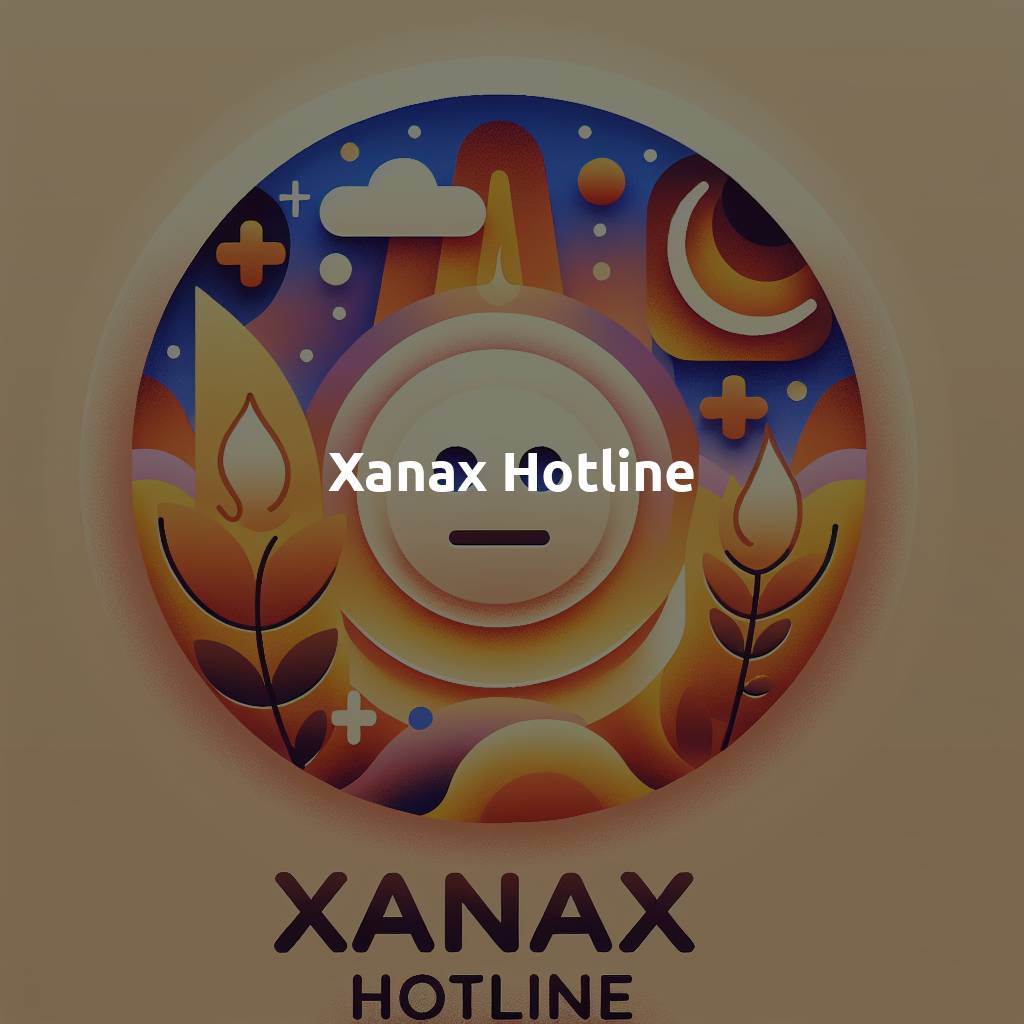Xanax Hotlines: Getting Help for Addiction
Xanax, also known by its generic name alprazolam, is a popular prescription medication used to treat anxiety and panic disorders. However, it also carries a high risk of addiction and abuse. If you or a loved one is struggling with Xanax addiction, there are hotlines and resources that can help.
Understanding Xanax Addiction
Like other benzodiazepines, Xanax works by enhancing the effects of gamma-aminobutyric acid (GABA) in the brain. This neurotransmitter has a calming effect that helps relieve anxiety symptoms. However, it also activates the brain’s reward pathways, making the user feel euphoric or “high.”Over time, the brain adapts to the presence of Xanax and needs more and more of the drug to achieve the same effects. This leads to physical dependence and addiction. Even those taking Xanax as prescribed can become addicted.Some signs of Xanax addiction include:
- Taking more Xanax than prescribed
- Frequently running out of prescriptions early
- Inability to function normally without the drug
- Continuing use despite negative consequences
- Powerful cravings for Xanax
- Using Xanax with other substances like alcohol
Xanax withdrawal can also be dangerous, producing symptoms like seizures, panic attacks, tremors, and suicidal thoughts. Attempting to quit “cold turkey” without medical support can be life-threatening.
Benefits of Calling a Xanax Hotline
Seeking help through a Xanax or drug addiction hotline has many advantages:Immediate Support – Hotlines provide someone to talk to 24/7. This immediate access to support can help users avoid relapse during moments of crisis or intense cravings. Trained counselors can talk through urges to use and provide coping strategies.Local Referrals – Counselors have extensive knowledge of treatment resources in the caller’s area. They can suggest rehabs, support groups, outpatient counseling and other services to start the recovery journey.Family Guidance – Addiction devastates families along with the user. Hotlines give concerned loved ones advice on staging an intervention, navigating treatment options, practicing self-care and more.It’s Free and Confidential – Hotlines are 100% free to call. They also protect caller confidentiality, providing anonymity to those hesitant to seek treatment. Users can openly discuss their situations without fear of legal or personal consequences.Reaching out to an addiction hotline is often the crucial first step toward sobriety. Taking that initial action empowers the user to pursue further treatment and build a network of support.
National Hotlines and Resources
Several national hotlines provide 24/7 service for those struggling with Xanax or other drug addictions:
SAMHSA National Helpline
**800-662-HELP (4357)**SAMHSA offers referrals and support for substance abuse and mental health issues. The confidential hotline connects callers to local treatment facilities, support groups and community organizations. SAMHSA also has an online treatment locator and library of educational publications.
American Addiction Centers
800-807-0951American Addiction Centers operates treatment facilities across the country focused on evidence-based care. Its hotline connects patients and families to its national network of rehabs. Specialists provide personalized guidance based on insurance coverage, location, treatment philosophy and other needs.
Addiction Center
800-604-2219This hotline by Addiction Center offers 24/7 assistance finding treatment. Counselors evaluate each case to match callers with suitable facilities and programs based on substance use history, mental health, insurance and other factors. Addiction Center also features educational articles on its website.
State and Local Hotlines
Many states and communities maintain their own hotlines for drug and alcohol addiction. These local services often provide the most relevant treatment referrals and closest support groups.To find a local hotline:
- Call the national SAMHSA helpline at 800-662-HELP (4357)
- Search “[my city] drug addiction hotline”
- Check state government health department websites
- Ask a primary care doctor or local mental health clinic
- Search online directories like AddictionResource.com and AdditionCenter.com
Local hotlines are often run by government agencies, treatment centers and non-profit organizations. They offer callers customized guidance based on available resources in their city or county.
What to Expect When Calling
So what happens when you actually dial up a hotline for drug or Xanax addiction? Here’s a quick rundown of what to expect:
- A trained counselor will answer and ask a few brief intake questions about your situation. This helps tailor guidance to your needs.
- You’ll discuss the major concerns, challenges and symptoms prompting you to call. Counselors listen without judgment and let you share at your own pace.
- Based on the intake details, the counselor suggests potential treatment options and local resources to contact. You can also request specific types of help if you already know what you need.
- Counselors are happy to answer any questions about the recovery process, what treatment entails, how to pay for rehab and much more. They understand this can be unfamiliar territory for new patients and families.
- Calls typically last 20 minutes on average but can run longer if more input is needed. You can always call back again whenever questions or struggles come up.
- The counselor will offer some parting words of encouragement, express gladness that you reached out, and remind you to call back if anything else is needed.
Conversations have an informal, conversational tone focusing on your concerns and building a plan of action. Counselors provide information and let you guide next steps, not pressure you. An addiction hotline gives you personalized feedback so you can make empowered decisions towards recovery.
Seeking Inpatient Rehab
For those with severe Xanax addiction, an inpatient rehabilitation program offers the most intensive level of care. These residential facilities remove the user from familiar triggers and environments supporting their substance abuse.Inpatient rehab provides:
- Medically-supervised detox – To safely clear Xanax from the body under 24-hour nursing care while managing difficult withdrawal symptoms
- Individual and group counseling – With licensed therapists helping identify root causes of addiction and building healthy coping skills
- Medication-assisted treatment – Using additional medications to ease cravings and withdrawal pains
- Alternative therapies – Such as art, music or equine therapy to promote healing and personal growth
- Ongoing support – With the creation of a continuing care plan, referrals to outpatient treatment, recovery coaches, alumni programs and support groups to help sustain sobriety after inpatient discharge
Typical inpatient programs run 30, 60 or 90 days. Longer stays may be recommended in certain situations based on the patient’s response and recovery trajectory.The structured environment and intensive counseling of inpatient rehab offer the highest success rates for long-term Xanax addiction recovery. Hotline counselors can explain the inpatient process in detail and connect callers with top facilities in their local area or nationwide.
Deciding You Need Rehab
Struggling with addiction often means denying the problem exists in the first place. The stigma around substance abuse and fear of facing sobriety cause many to put off getting treatment.Here are a few signs it may be time to take that scary yet brave step toward rehab:
- Relationships are unraveling due to lies, risky behaviors or emotional volatility related to Xanax abuse
- Work or school performance is declining with calls for disciplinary action
- Financial, legal or housing troubles are mounting but the drug use continues
- Use is escalating to hazardous levels but attempts to cut back have failed multiple times
- Withdrawal side effects like seizures or hallucinations emerge if trying to stop
Being ready for rehab means accepting the reality that Xanax has made life unmanageable. It requires desire for positive change and willingness to engage in intensive treatment.Still have mixed feelings about taking this big step? That’s completely normal. Call a hotline to explore those doubts and get feedback from an unbiased source. Counselors help callers thoughtfully weigh the pros and cons of rehab while offering encouragement.
Approaching a Loved One About Rehab
It’s often friends or family who first notice troubling signs of Xanax addiction. However, confronting the user about getting treatment can trigger denial or retaliation.Hotlines provide crucial guidance on staging an intervention – a structured conversation focused on expressing care and concern while setting boundaries. Counselors help plan the details:
- Who should attend
- What each person should say
- Where and when to hold the meeting
- How to respond to excuses or manipulation with firm yet compassionate messaging
They also give tips on productive ways for families to cope with their loved one’s addiction and take care of their own mental health. Addiction causes pain for those closest to the user that also requires healing.
Paying for Rehab Treatment
The costs associated with drug rehab often create another barrier to entering treatment. Rates depend on location, amenities and length of stay provided. On average, 30 days of inpatient treatment runs $15,000-20,000 without insurance. Outpatient programs cost significantly less but offer less intensive care.Here are some options to cover addiction treatment costs:Insurance – Most private insurers and Medicaid/Medicare plans now include substance abuse treatment thanks to the Mental Health Parity and Addiction Equity Act. Hotlines help callers determine their policy’s coverage.Financing – Many rehab facilities work with lenders to offer low-interest rates or flexible payment plans over 6-60 months.Crowdfunding – Sites like GoFundMe allow patients to request donations from extended family, friends and the general public.State and local funding – Some state or city governments have grants, vouchers or other programs assisting residents who lack insurance or assets to afford addiction care.Rehab may seem financially out of reach, but resources exist in most cases. Hotline counselors are experts at finding ways to fund treatment based on each patient’s situation.
Hope in Recovery
The first step – picking up the phone and calling for help – is often the most difficult one. Xanax addiction makes users feel trapped and hopeless. But thousands find freedom every year through entering treatment programs discovered via hotlines.These services provide struggling individuals and families a nonjudgmental lifeline. Counselors offer advice catered to unique needs, insurance, locations and more. They empower callers with information and local referrals to begin the recovery process.



